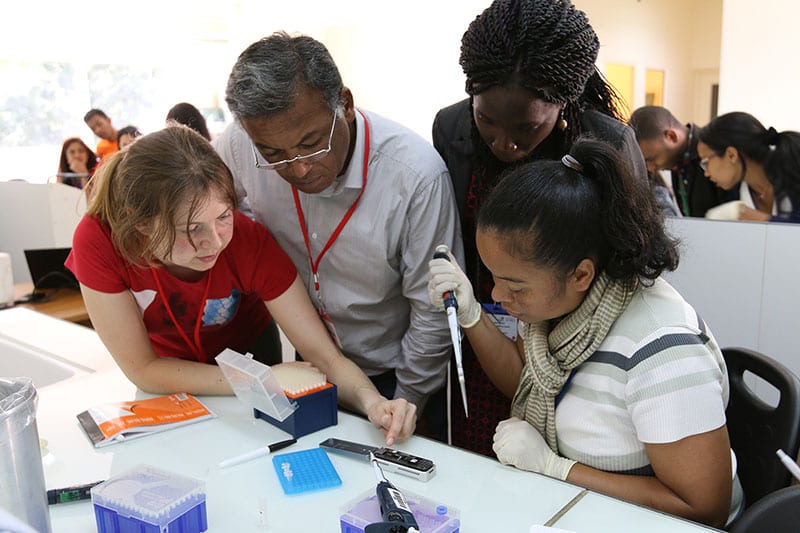Scientists in Madagascar have for the first time performed DNA sequencing in-country using novel, portable technology to rapidly identify the bacteria responsible for tuberculosis (TB) and its drug resistance profile.
The project, led by a global team of doctors and scientists from Madagascar’s National TB Program, Stony Brook University, the Institut Pasteur Madagascar (IPM), University of Oxford and the European Bioinformatics Institute (EMBL-EBI) is seeking to transform the surveillance, diagnosis and treatment of TB and other infectious diseases in Madagascar.
Medical researchers in Madagascar are trained by the global consortium on how to load DNA on the portable sequencer.
Beyond performing DNA sequencing on samples submitted to the nation reference laboratory for TB, the team partnered with TB clinics in the country to evaluate the ability to perform these analyses outside the labs or “in the field”.
“We have trained 22 scientists to perform DNA sequencing using the MinION platform,” said Simon Grandjean Lapierre, Research Coordinator from Stony Brook University, a member of the global consortium and of Stony Brook’s Global Health Institute. “Our long term goal, as part of our broader TB strategy, is to increase capacity and work on methods development so that DNA sequencing can become part of routine TB diagnosis and surveillance in Madagascar.”
As part of a larger study funded by the Wellcome Trust, the Academy of Medical Sciences and NIHR Oxford Biomedical Research Centre the team of researchers aim to develop more capacity for DNA sequencing and use this tool prospectively to identify TB drug resistance, better understand the dynamics of TB transmission in Madagascar and evaluate impact on public health.
Read more: https://news.stonybrook.edu/homespotlight/international-scientific-team-brings-portable-dna-sequencing-to-madagascar/

